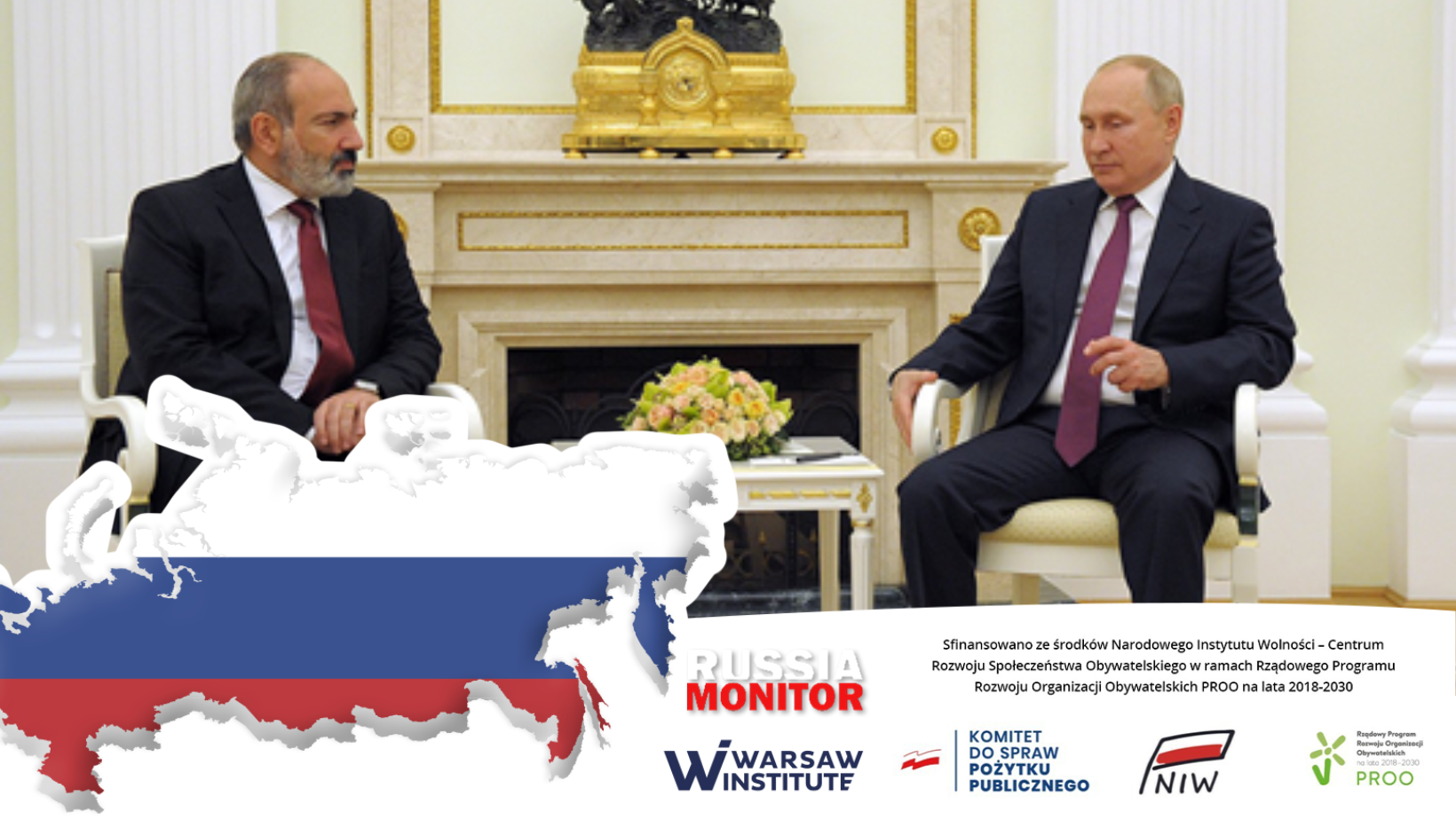
Russia Monitor is a review of the most important events related to Russian internal and external security, as well as its foreign policies.
Date: 31 October 2022 Author: Grzegorz Kuczyński
Will Armenia Accept Russian Peace Proposals?
Armenian Prime Minister Nikol Pashinyan said that the country agreed to work with Russian proposals to establish relations with longtime rival Azerbaijan. The leaders of Azerbaijan, Armenia, and Russia are expected to meet in Sochi. The Kremlin has responded to Western diplomatic efforts in the South Caucasus, where the European Union remains strongly engaged in mediating a peace process between Azerbaijan and Armenia over Nagorno-Karabakh.

“In early September, Armenia agreed to work on the basis of the main principles and parameters on establishing interstate relations between Armenia and Azerbaijan that were presented by the Russian Federation and is ready to confirm it in Sochi. We hope that Russia will retain its proposals,” Nikol Pashinyan tweeted on October 28. A few days earlier, Alen Simonyan, chairman of the Armenian parliament, confirmed the forthcoming meeting of the leaders of Armenia, Russia, and Azerbaijan on October 31 in Sochi. Russian Foreign Ministry spokeswoman Maria Zakharova earlier reported that Putin had invited Armenian PM Nikol Pashinyan and Azerbaijani President Ilham Aliyev to Russia for another trilateral summit to discuss the full range of trilateral and bilateral issues. Russia has acted as a chief mediator in the Armenia-Azerbaijan conflict. The fighting ended with a Russian-brokered agreement in November 2020. Under the armistice deal, Azerbaijan seized control of what is referred to as “the security belt” around Nagorno-Karabakh while Armenia claimed the strategically important city of Shusha. The deal also provided for creating a transport corridor linking Azerbaijan’s mainland and its exclave of Nakhchivan. However, Azerbaijan accused Armenia of being too sluggish in implementing the November 2020 agreement. As Russia invaded Ukraine, Azerbaijan caused some border clashes, attacking its neighbor. Azerbaijan keeps claiming some territorial gains, forcing Yerevan into more concessions on peace talks. Aliyev and Pashinyan both hope to reach a sustainable peace deal in the region later this year. The European Union has also remained engaged in helping both states and has dispatched a mission to Armenia’s border with Azerbaijan. Armenia’s Pashinyan is hoping to strike a deal with Turkey while France has been engaged in supporting Armenia. The U.S. has also entered the game––Nancy Pelosi, the speaker of the U.S. House of Representatives, made an official trip to Armenia. Russia is losing its tight grip on the South Caucasus amid its invasion of Ukraine and mounting tensions with Western nations. Through the forthcoming meeting in Sochi, the Kremlin is seeking to save its influence in the Caucasus and keep its mediating role in the region. Whether Moscow notches up any success remains unclear. Azerbaijan is sure of its advantageous position while Armenia––despite the fact of being an ally of Russia––is looking for some options outside the Kremlin. What Pashinyan said is not binding yet––as no one knows what Putin will propose during the Sochi meeting.
Support Us
If content prepared by Warsaw Institute team is useful for you, please support our actions. Donations from private persons are necessary for the continuation of our mission.
_________________________________
All texts published by the Warsaw Institute Foundation may be disseminated on the condition that their origin is credited. Images may not be used without permission.














